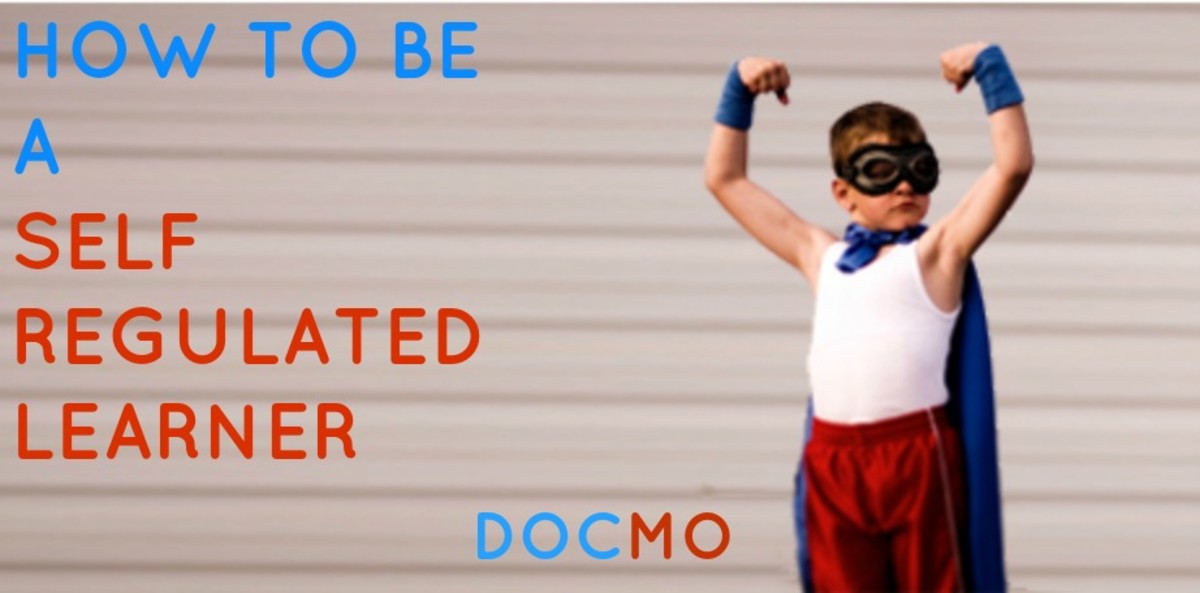Why do people learn?
elearning informational graphic

To e-learn or not; that is the question
Why do people learn?
There are several reasons why people decide to learn a new skill or concept. Some people enter the learning environment because they want to obtain the skills necessary for a new job. Others simply attend a class to brush up on a new concept such as how to manage their financial books. There is another group I wish to discuss today, this group of learners enter the classroom simply because they want to learn more about something that interests them.
Where can people learn?
You can check out your local colleges or universities to see if they offer classes that you want to take. You can also check to see if those colleges or universities have satellite sites where they offer classes. For example, some colleges may work through a library or the Department of Workforce Development in the US, and offer classes in an area where they do not have a campus. However, the traditional classroom setting is not the only place to learn in today’s society. Some businesses may also offer classes to help you get started with an interest or hobby. For example, here in my own community, a stained glass art business provides courses on how to create and design your own stained glass art piece.
Libraries are becoming a great option for checking into learning situations as well. Not only can you just check out a book on your topic of interest, but you may also be able to register for classes that the library offers. While libraries have historically been places to go when you want to read a book, that just isn’t the case anymore. Most libraries now consider themselves learning environments and have opened up their services to holding classes on various topics as well.
A third option for finding possible classes on any topic you want to learn is to locate a mentor or resource person. Skills such as cake decorating, needlecrafts, or piano tuning are good examples where you may find a person willing to teach you some skills. You could do a type of apprenticeship under their watchful eye to perfect your skill. And a final option on locating your own learning environment is to look for online courses in your area of interest. You may be surprised at just what all you can learn through an elearning course!
How do elearning classes work?
Many elearning classes involve text-based instruction. Students are provided step-by-step directions on how to do something. Several elearning classes may also involve a video where the instructor demonstrates how you do something. However, there are really two major ways the instruction can happen in elearning environments: synchronous learning and asynchronous learning. Synchronous learning occurs when you connect with the instructor at a specific time through some type of webinar or other communication tool. Asynchronous learning occurs when you connect with the instructor at a time convenient for you. The instructor’s videos or text-based instructions are located online and you can go in to review those instructions when you have time. It is important for you to understand how the elearning course will work before you attempt the class so you can make sure it is something that will work for you.
Is elearning a good option for me?
This is another area that must be thought through. Although I am an elearning instructor, and I love teaching online, elearning is not a great choice for all students. It is important to ask yourself the following questions: Can I learn in a classroom where the instructor is not right at my fingertips? Am I motivated enough to learn about this topic on my own? Am I comfortable working with the computer or do I need more skills in that area? Do I have the appropriate technology I need to receive and work with the course? Do I procrastinate, or am I able to pace myself and complete the tasks required by the course without an instructor or someone else coaxing me on? What kind of student support will I have during the class, is there a contact method listed for the instructor in case I have a question? Online students are typically self-motivated and self-disciplined. They understand their own abilities and experiences in relation to the course they will take. For example, if the course is all text-based – are you good at communicating through the written word? Will I be working on my own, or put into a class where I need to communicate with other students? Understanding exactly how the class will operate is essential in knowing if it will be a good match for your elearning adventure.
What can I learn?
That’s the beauty of education in today’s society. The Internet and recent advances in technology provide opportunities where just about anything you want to learn can be found online. Although I have been writing about taking courses, there are other ways you can advance your learning, too. Social Media has become a great learning opportunity. Websites such as LinkedIn or even Facebook can provide starting points for grasping interesting information. For example, I have an idea for a line of children’s books that I would like to develop. I joined several LinkedIn groups for ebooks, authors, and children’s authors where I am picking up some interesting information that should help me develop this line.
Search engines can bring you a plethora of information on a topic you are interested in as well. Sometimes, you may not even need to register for a class in order to learn about a new interest or hobby. One of my own favorite search engines is called dogpile.com. Dogpile.com is what is known as a meta-search engine – it actually checks the other search engines to see what results you would find there (such as About and eHow). One example of how learning through search engines for me was when my poor dog developed sarcoptic mange. I’ve learned more information on the mites that create this condition in my collie.
And the final method I want to discuss here deals with taking an actual course. Some courses are free while others may have a registration fee. One of the largest sources for free courses is Coursera. Their classes are a great source of information on just about anything you want to learn. Some of these courses may charge though, those are typically the classes coded as “Signature Track” classes. Coursera courses have instructors from well-known universities and organizations. They have over 350 classes on the music and film industry alone! When you enter the courser website, you can view the courses available by simply clicking topics under the category. It is an easily navigated site that provides many options for learning from well known universities.
Other options for learning about interests:
Are you interested in Cake Decorating? Check out http://www.wilton.com/classes/
What about more than just cake decorating – you can learn about more culinary arts at http://www.escoffieronline.com/
I mentioned piano tuning earlier in this hub – you can take courses online for that skill at http://www.pianotechnicianacademy.com/ or even http://www.nbss.edu/education/programs/piano-technology-landing-page/index.aspx?gclid=CK-muJzC_7YCFWNlMgodakMAeg
What about dog breeding or training? Try http://www.e-trainingfordogs.com/2011/05/breeding-and-genetics-diploma/
Okay, is flower-design more in your interest level? Try http://www.ashworthcollege.edu/career-diplomas/floral-design/
Or do you want to learn how to start a business with that newly learned skill? Try this site: http://www.myownbusiness.org/index.html
I could go on and on with this list, but the point is this: If you want to learn something – learn it! There is no reason why access to learning should be a barrier for anyone as long as they have a computer and Internet access. Sometimes, even the computer isn’t necessary anymore! Students can often use a notebook or an iphone to connect with learning environments. If you do not own a computer or another method to connect to the class, try finding a public Internet café that can help. Learning something not only helps you increase your skill or knowledge, it also helps keep the brain active and can provide a happier, healthier lifestyle.
About Coursera
- Coursera.org
Coursera's about page where you can learn more about this elearning website.









